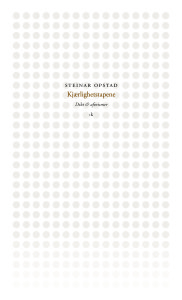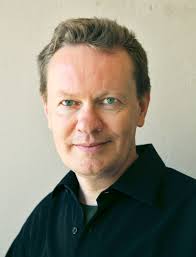(THIS ARTICLE IS MACHINE TRANSLATED by Google from Norwegian)
Steinar Opstad:
Love losses
Colon publisher, 2015
 Orpheus form animals with lyric games. The mythological cultural hero loves so much that he lost his girlfriend. IN Loss of love – poems and aphorisms writes Steinar Opstad that a poet "must turn away from his beloved many times to transform love's drama into poetry. But having an orphan soul must not be confused with being deceitful. " Opstad is loyal to love and the inner physician in this portrayal of hope, faith and love, and loss, doubt and continued love. If they were to be conveyed, they had to be tins of love in an upset and crazy world.
Orpheus form animals with lyric games. The mythological cultural hero loves so much that he lost his girlfriend. IN Loss of love – poems and aphorisms writes Steinar Opstad that a poet "must turn away from his beloved many times to transform love's drama into poetry. But having an orphan soul must not be confused with being deceitful. " Opstad is loyal to love and the inner physician in this portrayal of hope, faith and love, and loss, doubt and continued love. If they were to be conveyed, they had to be tins of love in an upset and crazy world.
The poet. "He's a surplus man," says Truls Lie. It is the middle of November, the first day of snow, and only days since Opstad read about the wind at the Artists' House in Oslo: «that there is a bird bigger than the wind. But life has taught me that as soon as three or four other birds come flying // the wind becomes the biggest again ». We look out at the weather, into low cloud cover. Inger Christensen once wrote that she liked to see the reports. Not to know what the weather would be like, but for "a moment to see the world from above". God is present in many ways in Opstad's new book. As a theme, but also as a method: to look big on the world. That's a big claim. But Opstad looks big on the world. The surplus surplus is there as visions, through poems and aphorisms. The poet himself claims that it is a non-idealizing look. We go to the text for an alternative answer:
Poetry. "In poetry as well as in life, too much sincerity can be a sign of emptiness, just as too little sincerity can be a sign of the same," says Love losses. "You have to love something in sound to progress as a lyricist," says the poet (Vårt Land, August 2015). For most of all, love is: the love of another human being, the love of a community. Feast materializes community to aphorisms. Little is as human as this genre. Aphorisms are the texts people take home. They attach themselves to people who refrigerate magnets, and are here today as an imprint on my coffee mug. The word "aphorism" comes from the Greek aphorismos / aphorizein. It seems "to refine". But all precise and delimited text is not aphorism. These aboriginal aphorisms are intense poetics. These are clear stars to orient themselves to in a chaotic world. But when this gets written, there is still no mention of the book in any Norwegian medium. Poetry needs mediators. Opstad is one of our most important ones. Cardinal directions (Colon, 2011) is a judgment. The essay collection presents twelve poets – among others Ellen Einan, Gunvor Hofmo, Paal Helge Haugen and other contemporary / modernist poets. You can also call it a collection of poetics, a collection of literary motifs; rent star:
"Some people have this ability to burn on the light that they themselves radiate [...] and I know that if they died I would just shed light tears on them."
This is how Cardinal directions a space trip in the… crypto tradition… by modernist lyricists: Opstad sheds his light on their support or in other ways on the outside. Everyone had an opposition to the obvious. Opstad pointed out what he thought were "the real geniuses" – like Ludwig Wittgenstein. There is a deep human attitude Opstad here shows: He can lift dictators high. He takes them down that. Love losses spanning between heaven and earth, between God and the farmer. Welcome to the room:
The economics of poetry. "A poet must have a minimum of peasant knowledge, for when spirituality takes over, art evaporates." "The poet is like the pig, easy to stress." High and low stand side by side in this book. The poet is self-righteous on behalf of dictators. The poem is itself ironic on behalf of poetry. One example is the italics of "small" in "for lite sincerity can be a sign of the same ”. Little is as much fun as italics. Others will call italics governing. The italics can be intrusive. But Opstad tightens italics. He is a balance artist on the narrow road between too soft and too small. Does it come naturally, or does it work out? “Almost nothing is impulsive or spontaneous in the poem, it has been prepared for years in the poet's mind. For the poet, life is the only long exercise in the art of concentrating. ”
Opstad is a discerning linguist and undoubtedly a great stylist. Out there, there are countless good analyzes of Opstad as a language user. Something new about this collection is the aphorisms. "Aphorism is aiming for a world that does not exist," the poet tells Our Land. The aphorisms are whole and neat. These are concentrated textures about concentration. But the world and life are chaotic. Aphorisms are ideal – about the impossible ideal. Aphorisms problematize the aphoristic. In this lies some of the tension in the collection. To say it with Opstad himself, from the Vårt Land interview: "Poetry is the language most suitable for embracing the paradoxical."
God is present in many ways in Opstad's new book. As a theme, but also as a method: to look big on the world.
Opstad provides at least two forms of hope. The only thing is the community. For sure, the book is writing from "I" – but the community is strong. It is in the wind and in the birds that lie on the wind. "We" meeting test in concentration in Love losses, as potential brothers and sisters in a monastery. "Stones of the Resurrection," the author writes in one city in the book. The monk alternates on the poet. The poet alternates on the monk. They share concentration. They share the fair. They share music and choirs. Opstad's choir is one of the traditional ones; those who belong to the tradition of those who are outside. Opstad provides an alternative community: poetry itself. "Poetry is the deepest factual and the only thing that reconciles."
Poetry and the world. “Is Faith a Daydream? No, it cannot be that way, for a whole life cannot be filled with one and the same dream. Rather, let's say that faith is as real as the weather. " The weather is close to us, here we are in downtown Oslo. The snow turns, the streets warmer. People go out, make the city center busier. I am in the uphill. The speed he has been writing with is contagious. The shoulders lower, the senses open. The coffee is hot. The cafe has great space, great tranquility. Suicide bombers killed hundreds in Paris and Lebanon. France bombs Syria. Norwegian police pick up the weapons. Norway urges amendments to the law to stop the refugee trauma in Finnmark. People are migrating from horrendous places to places they have read and heard that they must be better. Information wanders and flows – like boats and trains of refugees. The information society is a perpetual buzz, perpetual impression. Pictures of the good lives are stored with the dissatisfied. Like so many gongs before in history – yes, more than ever, put people on a hike. More than ever, it was documented. It feels out of control; wild, serious. Someone has to tame the wild. Orpheus takes up the lyre. He sheds tears in the hardened spirit. Even animals are formed by orphan games. After a loss of love, Orpheus longs to say to the boys. Stunned, in love women cut off his head. The head flows ashore on the island of Lesbos. There it continued to sing, through Love losses. Warm quilts in an added value.


